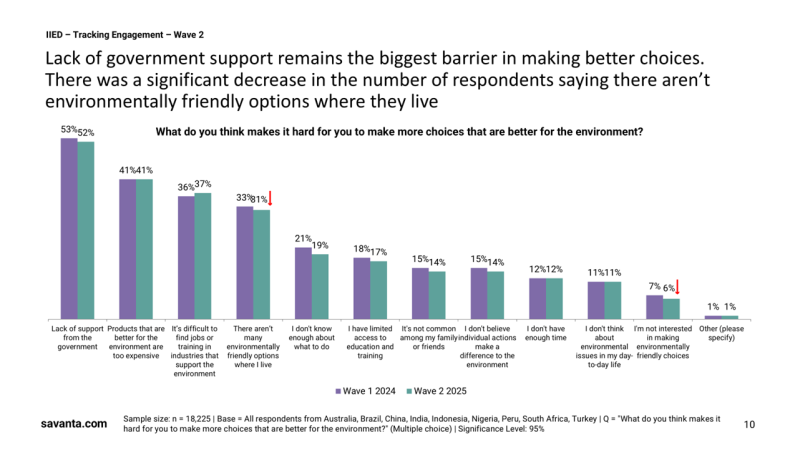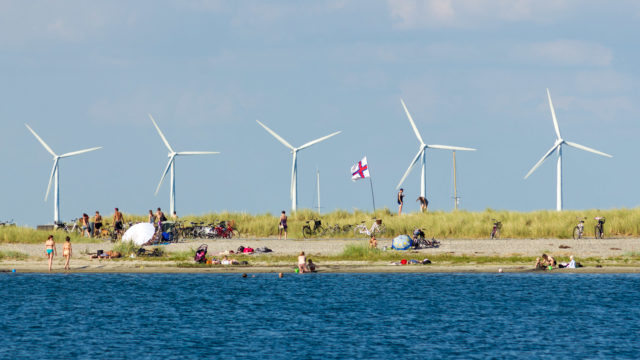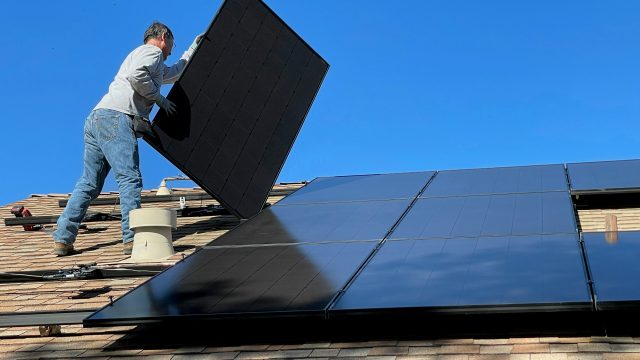“What do we want?” “More radical transfomative government action”
That's right - despite politicians losing their nerve, citizens around the world are calling for more action on green

With our 2025 Global Green Attitudes survey now out in the wild (read more on the launch here), it’s time to dig into the results, track the trends and draw out some conclusions. The first thing to note is that the political environment for our 2025 poll is very different to when we did our first wave of polling this time last year. The cost of living crisis has continued to bite and relatedly, Trump has been re-elected, joined by other right-wing populists and their pro fossil fuel agenda. In response, a “green hushing” has followed in their wake with government websites, corporate and charity websites reframing, deleting or hiding sustainability efforts.
In this context this year’s polling data reveals an interesting dynamic between public support for environmental action and the perception of government performance: the public strongly demands systemic, transformative government action, yet simultaneously holds low trust in political leaders and widely perceives that they are failing to deliver.
The Disconnect: High Demand for Government Action Meets Low Perceived Delivery
The most striking finding is the wide gap between what the public wants government to do and what they believe the government is currently achieving. Support for ambitious, government-led policies remains high. For example, 82% agree that investment in clean energy should be a top priority, even if it requires significant government spending. Moreover, 88% agree that the government should be doing more to combat climate change.
But despite this strong mandate, only 42% globally believe their country’s government is taking more action now compared to last year to protect the environment. In stark contrast, 69% globally say they personally are taking more action than last year.

This perceived failure is acknowledged by the public, with 73% agreeing that "politicians are not keeping up with what people want them to do on the environment" – and over half thinking that politicians have given up on tackling climate change. Sad!
Lack of Government Support is the Biggest Barrier, Not Apathy or Cost
The perception data flips the narrative that public inaction is due to apathy or purely economic concerns, instead pointing directly to political barriers.
The lack of support from the government remains the biggest obstacle preventing people from making better environmental choices, cited by 52% globally. This systematic barrier is felt most keenly in countries like Nigeria (67%), Turkey (62%), and South Africa (61%).
And, not coincidentally, what most respondents agree on is that government support is essential to help them make better, more impactful choices on supporting the green transition. Citizens can’t do it on their own, after all – they need the support of the state to enable them to drive the kind of changes they want to see.
In support of this, when asked what kind of government support would help them, respondents provided a highly distributed list of necessary interventions, including more funding for environmental programs (59%), better laws or regulations (58%), and support for environmentally friendly business or jobs (57%). This confirms that citizens see governments as holding the keys to unlocking widespread environmental action.
Low Trust Coexists with High Demand for Radical Solutions
The public exhibits low confidence in political leaders overall, yet this distrust does not translate into a desire for less ambitious policy. In fact, our survey shows almost the opposite!
Trust in political leaders to make the right decisions for a sustainable future remains low and largely unchanged since last year. The global net trust level is just 39% - a truly pathetic figure, but unsurprising given the widespread suspicion and loss of trust in institutional leadership worldwide.
Yet despite this collapse in faith, demand for transformation is stronger than ever. Global publics prioritise three systemic reforms as the most effective actions towards driving green transformation: government support for green businesses; stricter regulations on industrial pollution and waste management; and stricter regulations on businesses to reduce their environmental impact - even if that means higher prices for products.
In essence, the data shows that citizens are willing for government to make economic investments to address climate change and they personally are already increasing their personal action. There is a desire for governments to do more to make widespread environmental choices feasible and affordable. The only question remains, therefore: when are governments going to start listening?
- Jean McLean, GEC


